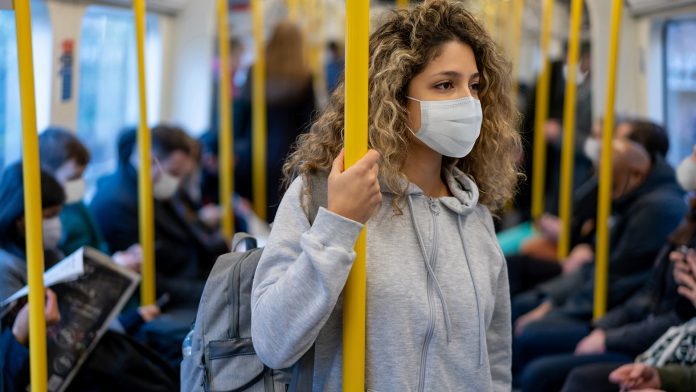
Following overnight genome sequencing, the UK Health Security Agency (UKHSA) has confirmed three cases of the new covid variant, Omicron (B.1.1.529), in the UK as of 28 November 2021.
The first two individuals who tested positive and all members of their households are being re-tested and are isolating until further testing and contact tracing is underway. The first case was in Chelmsford, the second in Nottingham, and the third has now left the UK but was in Westminster, London. All cases have been linked to travel to South Africa. To combat the spread of this new covid variant, the UKHSA is carrying out targeted testing at locations where the positive cases visited when they were likely to have been infectious.
The UKHSA has designated variant B.1.1.529 as a variant under investigation (VUI) on Thursday, 25 November. It was designated a variant of concern (VOC) on Saturday, 27 November.
New covid variant of concern
The B.1.1.529 variant includes many spike protein mutations along with mutations in other parts of the viral genome. These are potentially biologically significant mutations that may change the behaviour of the virus with regards to vaccines, treatments and transmissibility.
The UKHSA is working in partnership with scientific bodies across the globe and is monitoring the status of Sars-CoV-2 variants as they merge and develop worldwide. The government of South Africa shared vital information in advance on the Omicron variant, which has allowed scientific bodies to begin researching.
Furthermore, the UKHSA has confirmed they are collating scientific evidence as quickly as possible to inform the right balance of interventions to prevent transmissions and protect lives. This will include analysing live samples of the new covid variant in laboratories to investigate properties such as the response to current vaccines.
Viruses mutate often and randomly; therefore, small numbers of new cases can arise featuring new sets of mutations. Any variants showing evidence of spreading rapidly are assessed.
How will this affect the general public?
The UK Government have confirmed new temporary and precautionary measures following the emergence of Omicron. These measures will be in place for three weeks and will be re-assessed.
These measures will be introduced on Tuesday, 30 November, as a precaution to slow down the spread of the variant. This includes:
- All international arrivals must take a Day 2 PCR test and self-isolate until they receive a negative result.
- All contacts of suspected Omicron cases must self-isolate, regardless of their vaccination status. They will be contacted by NHS Track and Trace.
- Face coverings are compulsory in shops and on public transport. All hospitality settings are currently exempt.
Travel restrictions have already been implemented to slow down the spread of the variant and protect the UK borders. South Africa, Botswana, Lesostho, Eswatini, Zimbabwe and Namibi, Malawi, Mozambique, Zambia, and Angola will be added to the UK’s travel red list.
Early indications suggest this new covid variant may be more transmissible than the Delta variant and current vaccines could be less effective against it. A rapid rise in infections in South Africa has been attributed to the spread of the Omicron. However, the vaccination programme and test, trace and isolate system continues to be the most effective way of reducing transmission, along with practising good hygiene, keeping spaces well ventilated and wearing a face-covering in enclosed or crowded spaces.
























